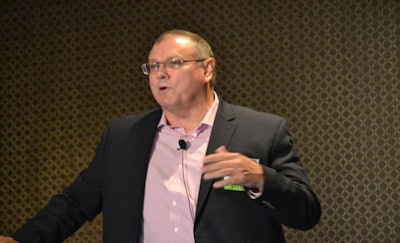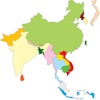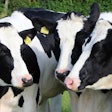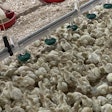
A new book, “What Would Jesus Really Eat? The Biblical Case for Eating Meat,” looks at what the Bible has to say about using and eating animals from several different perspectives in response to animal activists trying to use Christianity as a scare tactic in preventing consumers from eating animals.
The book was edited by Palm Beach Atlantic University’s public relations professor, Wes Jamison, PhD who is also an ordained Southern Baptist minister and Paul Copan, PhD, Christian theologian, analytic philosopher, apologist, and author.
“The book tackles topics including the challenges to Christian meat-eating, human exceptionalism and humanity’s dominion over other living creatures,” said a press release from the Animal Agriculture Alliance, a nonprofit organization that helps bridge the communication gap between farm and fork.
The book does not take on factory farming because Jamison explained that the Bible has nothing to say about the level of intensity or how animals are raised, other than general principles.
“The key theme of the book is that you can eat whatever you want to eat, it’s not a question of conscious that you should feel guilty if you chose to eat veal calves, pork, lobster, etc. ... it really doesn’t matter. You not only have permission but a blessing to eat animals and the source of those animals is really not addressed in the Christian scriptures,” said Jamison during the "What Would Jesus Really Eat?" Book Launch Teleconference hosted by the Animal Agriculture Alliance on Wednesday, July 17.
The book is intended to be read by Christians who want to know the theological reason for what they do. “If someone tells a person that you should feel guilty for eating a veal calf or for eating meat from a large farm this book is a ready resource and a tool to defend themselves with church history and particularly the Bible itself,” Jamison said, “Human beings are given the right to use creations for the benefit of people.”
Historically meat-eating limitations have been a question of conscious for Protestant Christians or Christians in general, there really are no dietary restrictions other than what your conscious guides you to believe, he explained. “Romans 14 explains the clear idea is that you may eat whatever you want to eat as long as you are not a gluten and that you do not make your convictions somebody else’s commandments,” he said.
Jamison explained that this topic is nothing new. “The topic of how a Christian should live is as old as the New Testament era. The debate about what foods you should and cannot eat is as old as the Christian text itself,” he said.
Why is this topic so relevant now?
In the new testament era, different philosophies have come about that tell believers that they do not have the freedom through Christ to eat what they want to eat. “Animal rights activists have put a focus on this topic as a way to undermine the legitimacy of animal agriculture in the United States,” he said.
Kay Johnson Smith, president and CEO of Animal Agriculture Alliance agreed by stating the following, “Over the past decade, a growing number of misleading messages about modern animal agriculture have been presented by animal rights activist groups to church and religious leaders or in religious forums, under the guise of religion and compassion.”
Starting in the 1970s and 1980s philosophers like Peter Singer identified Christianity as the last barrier against animal rights, Jamison explained. “The reason why is because human beings are separate and distinct from creation. We are created in the image of God where animals are not,” he said.
Different animal activist groups including Humane Society of the United States (HSUS) have spent money on materials and campaign items to specifically target those of the Christian belief. Smith noted that these groups have even sent out mass emails around the holidays calling for less meat-eating and that churches have joined the Meatless Monday craze. Jamison added that even Sunday School materials are being sent to churches or are available to download from activist groups.
“These resources are designed to teach people that eating animals whether it be from an organic farm or a high-efficiency farm is somehow morally wrong,” Jamison said.
In addition to chapters from Jamison and Copan, the book includes chapters from five different authors with unique perspectives and expertise in theology: Tom St. Antoine, PhD, Palm Beach Atlantic University; Timothy Hsiao, PhD, Grantham University; Walter Kaiser, PhD, evangelical Old Testament scholar and Randy Spronk, a Minnesota hog farmer.
“What Would Jesus Really Eat? will help arm farmers and ranchers and others in the animal agriculture industry with the information they need to have informed conversations about the complex subject of religion and eating meat. You’ll be better prepared to push back against activist claims after reading this book,” Smith said.
How to obtain a copy
Copies of the book can be purchased from the Alliance for $15.00 plus shipping and handling. Bulk order discounts are available for quantities from 25-99 ($13.00 per copy plus shipping and handling) and 100+ ($10 per copy plus shipping and handling). If you have questions about placing your order, contact the Alliance at [email protected] or +1.703.562.5160.


















